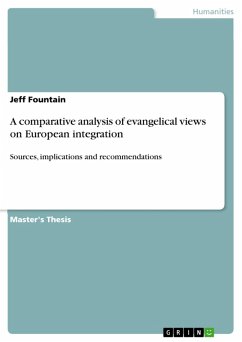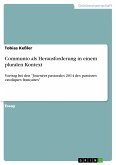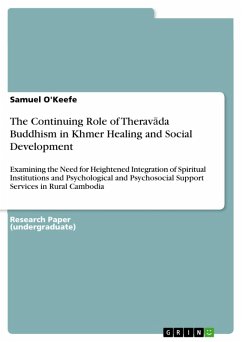Master's Thesis from the year 2021 in the subject Theology - Miscellaneous, grade: 81, , course: Missional leadership and European Studies, language: English, abstract: How have Evangelicals viewed European integration during the seven decades of its unfolding development? What factors have informed these perspectives? Are Evangelicals guilty of 'taking no part, forming no opinion, looking on and doing nothing' concerning the unprecedented project of European integration initiated after World War Two to establish and sustain peace and well-being among the European peoples? These questions define the first level of inquiry of this research project, which reveals a clear absence of evangelical engagement with European integration, especially when compared with Roman Catholic and mainstream Protestant perspectives. The inquiry then examines the reasons for this absence before broadening to consider evangelical engagement in the socio-political life-spheres generally in Europe today. It also investigates what training programmes are available for the equipping of Evangelicals for socio-political reflection and engagement in general, and for European-level engagement specifically. In the recommendations section, steps are proposed to identify the necessary foundations for a European, evangelical, missional, public theology, enabling critical missional reflection and engagement of both the European integration project itself and socio-political issues at every level of society. Our contention is that public theology - applying God's Word to public life - has been a neglected field among Evangelicals, despite being a centuries-old tradition. Today democracy, the rule of law, freedom of speech and community values are under threat from inside and outside the European Union by, on the one hand, resurgent totalitarianism, populism and nationalism, and on the other, a radical individualism celebrating diversity and freedom at the cost of social cohesion. Yet a long-standing tradition of non-engagement and a fatalistic eschatological vision, among other factors, have neutralised much of the evangelical world from effective engagement with such issues. This paper exposes major blind spots in evangelical thinking, a well-meaning ignorance undermining Christian responsibility in the socio-political spheres, and a general lack of vision reflected in the paucity of evangelical public theology programmes equipping workers for effective socio-political engagement. While there are scattered signs of hope, initiatives beyond those focussed on the local level are rare, if not non-existent.
Dieser Download kann aus rechtlichen Gründen nur mit Rechnungsadresse in A, B, BG, CY, CZ, D, DK, EW, E, FIN, F, GR, HR, H, IRL, I, LT, L, LR, M, NL, PL, P, R, S, SLO, SK ausgeliefert werden.









